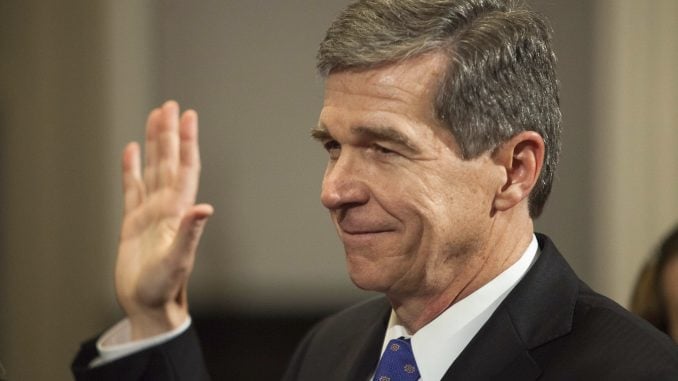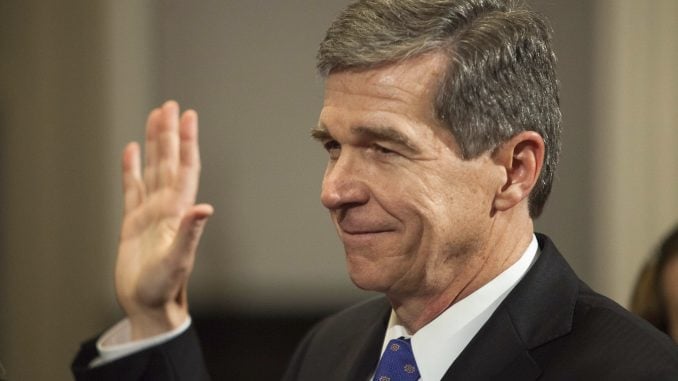

RALEIGH — Gov. Roy Cooper’s out-of-state travel has come into question after a news report that his office and the State Highway Patrol refused to turn over public records.
The request related to information on two trips Cooper made to New York City on Jan. 31 and June 20 of this year.
According to a WBTV report, Sgt. Chris Knox, a spokesman for the highway patrol, said the agency no longer completes forms EP-25 for out-of-state travel and hasn’t since 2014. This explanation is contrary to travel records requested and received after 2014 by WBTV, which detail both in- and out-of-state travel by former Gov. Pat McCrory.
The office of the lieutenant governor also is afforded a state trooper detail and are subject to the same travel record filing.
Jamey Falkenbury, director of communications for the Lt. Gov. Dan Forest, said in an email to NSJ: “Since 2013, when Lt. Governor Dan Forest first took office, the Lt. Governor’s executive detail has been documenting both his out of state and in-state travels.”
Forest’s office told NSJ they are unaware of any changes in reporting by the State Highway Patrol up until recently.
“If the policy for reporting out of state travel changed during the previous administration, we were not notified,” Falkenbury said. “Only in the last month has the Lt. Governor’s executive detail been told by the highway patrol not to turn in out of state travel documents.”
A second subsequent explanation was sent by Knox about why they did not turn over the governor’s travel records.
In an email to WBTV, Knox wrote, “As you are aware, pursuant to NCGS § 132-1.7(a), ‘Public records, as defined in G.S. 132-1, shall not include … plans, schedules, or other documents that include information regarding patterns or practices associated with executive protection and security.’
“Accordingly, it is our position that we have provided the public record documents that are responsive to your requests regarding this matter.”
The highway patrol did supply an EP-20 form for mileage related to travel for Cooper for a 7 a.m. meeting on Jan. 31. That form showed the troopers drove 29 miles, which the WBTV report notes is “the exact round trip mileage from the Governor’s Mansion to RDU Airport.”
A second EP-20 form shows the same mileage and event description for the following day.
The highway patrol provided another form for June 20 with similar mileage to the Jan. 31 form and had a description that said “5:30 a.m. meeting.” The following day, records show the same mileage and description for an event at 8:50 a.m.
Cooper was questioned on camera by WBTV about his travel to New York City but did not answer a reporter’s questions.
“Our office maintains public records for official state travel. The Governor was not traveling for state business on these days and no state aircraft were used,” said Cooper’s communications director, Sadie Weiner, in a statement.
In 2018, Cooper and his administration sought public input for revisions to the state’s records request rules after media outlets filed suit in 2015 alleging that the McCrory administration had delayed document production and charged excessive fees for related records request work.
Some of the proposed rule changes included making sure that records were not being delayed or withheld because a prompt release “would not be ‘prudent or timely’ or cause embarrassment.”
Cooper, while running for governor, drew criticism about his lack of a paper trail during his 16 years as attorney general. During the 2016 election, it was reported that out of 36,000 emails produced in a media records request, Cooper’s official email was only found to have been used only a “couple of times,” and that a private AOL email account had been used by Cooper a few times as well.
While in his role as attorney general, Cooper created the “North Carolina Guide to Open Government and Public Records.” The guide, written with the help of the NC Press Association, lays out public meeting laws, what is and isn’t a public record, how to obtain such records, and what to do if records are denied.



